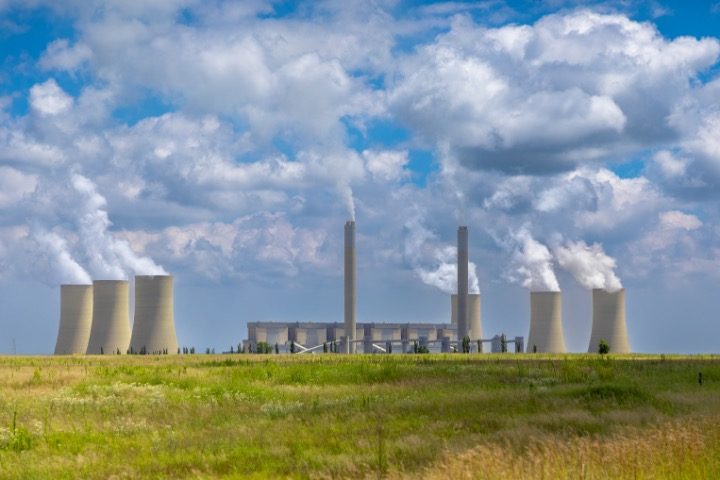
South African government officials told Reuters last week that they expect to miss the nation’s binding carbon-emissions target under the Paris climate accord. The Cape Town government had agreed to cut carbon emissions to between 350 and 420 million tons by 2030, down from 442 million tons in 2020.
The plan had been to meet those emissions goals by closing at least six coal-burning plants by 2030, with the remaining plants phased out by 2034. So-called renewables such as wind and solar were counted upon to make up the energy difference. Unfortunately, according to government officials, it’s not going to happen.
“Our models suggest we will miss the 2030 target,” an unnamed official told Reuters.
Officials in the South African government say they must push those promised emissions cuts back to 2035 at the earliest. There was no word on how the delay might affect the nation’s pledge to have net zero emissions by 2050.
South Africa is currently in the midst of an energy shortage, with the nation experiencing rolling blackouts up to 10 hours per day for the last year and a half. The U.S. Embassy in the nation has already warned American citizens that they should expect “loadshedding,” otherwise called “controlled rolling blackouts.”
“U.S. citizens in South Africa should be prepared for frequent power outages — also known locally as “loadshedding,” a term which refers to controlled rolling blackouts. Loadshedding is employed to reduce consumer stress on the country’s electrical grid at times when supply is unable to meet demand,” the embassy told U.S. citizens.
“While a nationwide blackout remains unlikely, the U.S. Government urges U.S. citizens in South Africa to practice good crisis preparation planning,” the embassy stressed.
“It is very hard in the middle of a power crisis to be taking working coal-fired plants off the grid,” Crispian Olver of the Presidential Climate Commission told Reuters.
While government officials continue to put the cart before the horse when it comes to climate, it’s apparent that electricity-starved South Africans are caught in the middle of a battle between climate promises and people’s needs.
“These arguments about decommissioning power plants have come up, and while climate change is a significant issue and we do need to transition to lower carbon sources of electricity, we need to consider the need for an increase in electricity in general in South Africa,” said Julia Taylor, a researcher on climate change and inequality at the University of the Witwatersrand.
“So we need to continue to build out renewable energy but not start switching anything off until we have enough electricity to provide for basic needs in the country,” she added.
According to Eskom, the state-run power company, South Africa is still getting 80 percent of its electricity from coal. Officials had hoped that a transition to renewables would make up for the shuttering of coal plants but, thus far, the switch to renewable sources of power has been hampered by mismanagement and government corruption.
The World Bank has already loaned Eskom nearly $500 million to speed up the decommissioning of the coal plant at Komati. In mid-October, the bank announced it was considering loaning the South African government another $1 billion to support the power grid and a switch to renewables.
“It’s a policy development loan which supports critical reforms,” said Marie Francoise Marie-Nelly, the World Bank’s country director for South Africa, Botswana, Namibia, Lesotho, and Eswatini. “There’s a particular focus on transmission, because it is a stumbling block in terms of bringing new (capacity) that is going to be built mainly by the private sector.”
But it seems as if the World Bank is simply throwing money at an energy transition that appears to be doomed by incompetence and bureaucratic bungling.
The South African energy crisis comes as other nations are also having difficulty meeting their climate goals. Just last week, despite Prime Minister Justin Trudeau’s promise that climate change was among Canada’s highest priorities, the nation announced that it will miss its promise to lower emissions by 40 to 45 percent below the 2005 level by 2030.
In September, U.K. Prime Minister Rishi Sunak announced that his country was delaying a proposed ban on gas-powered vehicles by 2035, saying it would lead to “unacceptable costs” on the nation’s households.
Why are any of these nations bothering with this demented and unnecessary plan to get off of reliable and abundant energy sources? Even if they could meet these unrealistic climate goals, any contribution their efforts would make toward the global good would be counteracted by China’s and India’s increased reliance on coal-fired power plants.





















































